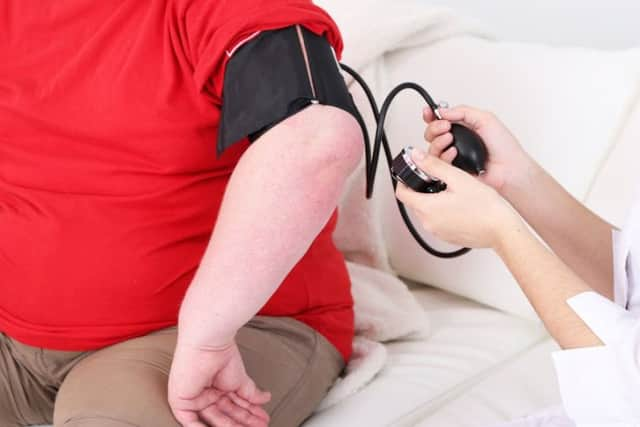Overweight and obese workers take more sick days


And the obese are more likely to suffer an occupational injury.
Spanish researchers looked at the health and the number of days signed off sick of 174 000 employees taking part in The ICARIA Study.
Advertisement
Hide AdAdvertisement
Hide AdThis was designed to analyse cardiovascular risk factors and their impact on sickness absence in the Spanish working population.


Dr Miguel-Angel Sánchez-Chaparro of the University of Málaga said: “Overall, the working population is supposed to be young and healthy but we have found a high prevalence of cardiovascular risk factors, like tobacco consumption, hypertension, or dyslipidaemia.
“About six per cent of Spanish workers are at high cardiovascular risk, i.e. their likelihood of suffering a fatal cardiovascular event during the next ten years is five per cent or greater, and they take excess sick leave.”
The latest study investigated the impact of obesity on sick leave and whether it varied according to being metabolically healthy or metabolically unhealthy.
Advertisement
Hide AdAdvertisement
Hide AdResearchers classified the participants with an average age of 41, two thirds men and half doing manual labour by their BMI and whether they were metabolically healthy or unhealthy.


To be metabolically unhealthy they had three or more of the following criteria - large waist circumference; raised triglycerides or receiving treatment for hyperlipidaemia; low HDL (high-density lipoprotein) cholesterol; high blood pressure or previous diagnosis of hypertension or receiving treatment for hypertension; or high fasting glucose or receiving treatment for diabetes.
The number of sick days were retrieved from medical records and divided into non-work-related diseases and accidents and work-related diseases and accidents.
The proportions with overweight, obesity and metabolically unhealthy phenotype were 38%, 16% and 10%, respectively.
Advertisement
Hide AdAdvertisement
Hide AdThe researchers found a consistent association of overweight and obesity with sickness absence due to non-work-related illnesses in both metabolically healthy and unhealthy workers.
Metabolically healthy overweight and obese people were 37 per cent more likely to take sick leave and metabolically unhealthy overweight or obese people were 71 per cent more likely to take sick leave than people who were not overweight/obese.
Dr Sánchez-Chaparro and co-author Dr Eva Calvo-Bonacho, head of health projects at ICARIA said: “Our results show that overweight and obese workers are more likely to take sick leave for non-work-related illnesses, regardless of whether they are metabolically healthy or unhealthy.
“The increase in sickness absence and associated productivity losses add to the pervasive consequences of obesity which is already a major public health concern.”
Advertisement
Hide AdAdvertisement
Hide AdIn the case of work-related sickness absence, the risk of suffering occupational injuries was higher in workers with a BMI 35 to 39.9 kg/m2 and metabolically healthy.
They added: “In the case of work-related sickness absence, our results suggest that obesity and the metabolically unhealthy phenotype could be linked with a kind of exclusion from professions and activity sectors that involve more physically active jobs and are thereafter riskier from the point of view of occupational injuries.”
“Our results highlight the need to develop effective interventions aimed at decreasing the negative impact of the obesity epidemic among the working population.
“Metabolically healthy workers who are overweight or at the mildest range of obesity progression may be an appropriate target group in whom to implement lifestyle modification initiatives to reduce the likelihood of transition to an impaired metabolic phenotype.”
The findings were presented at EuroPrevent 2017.